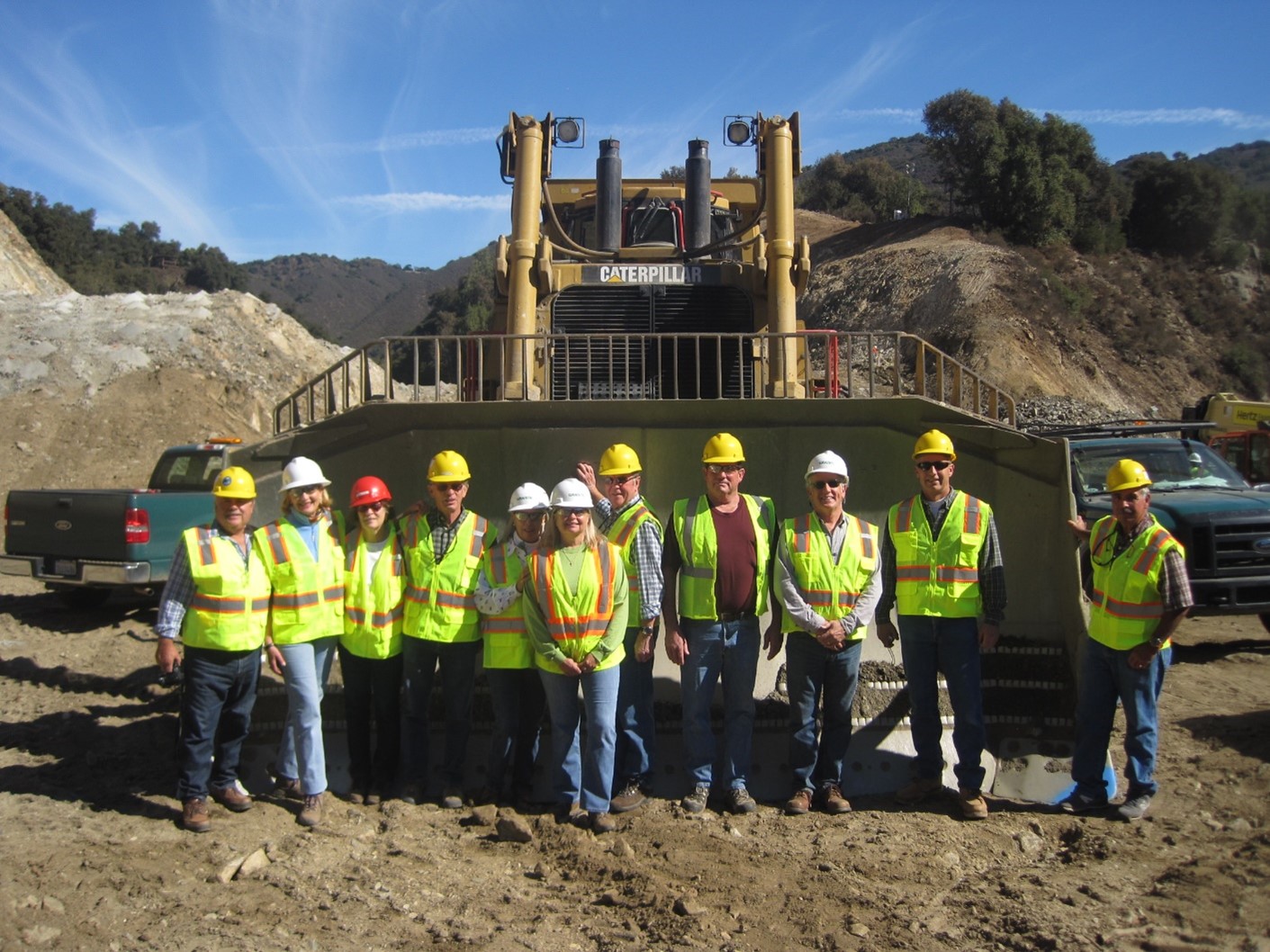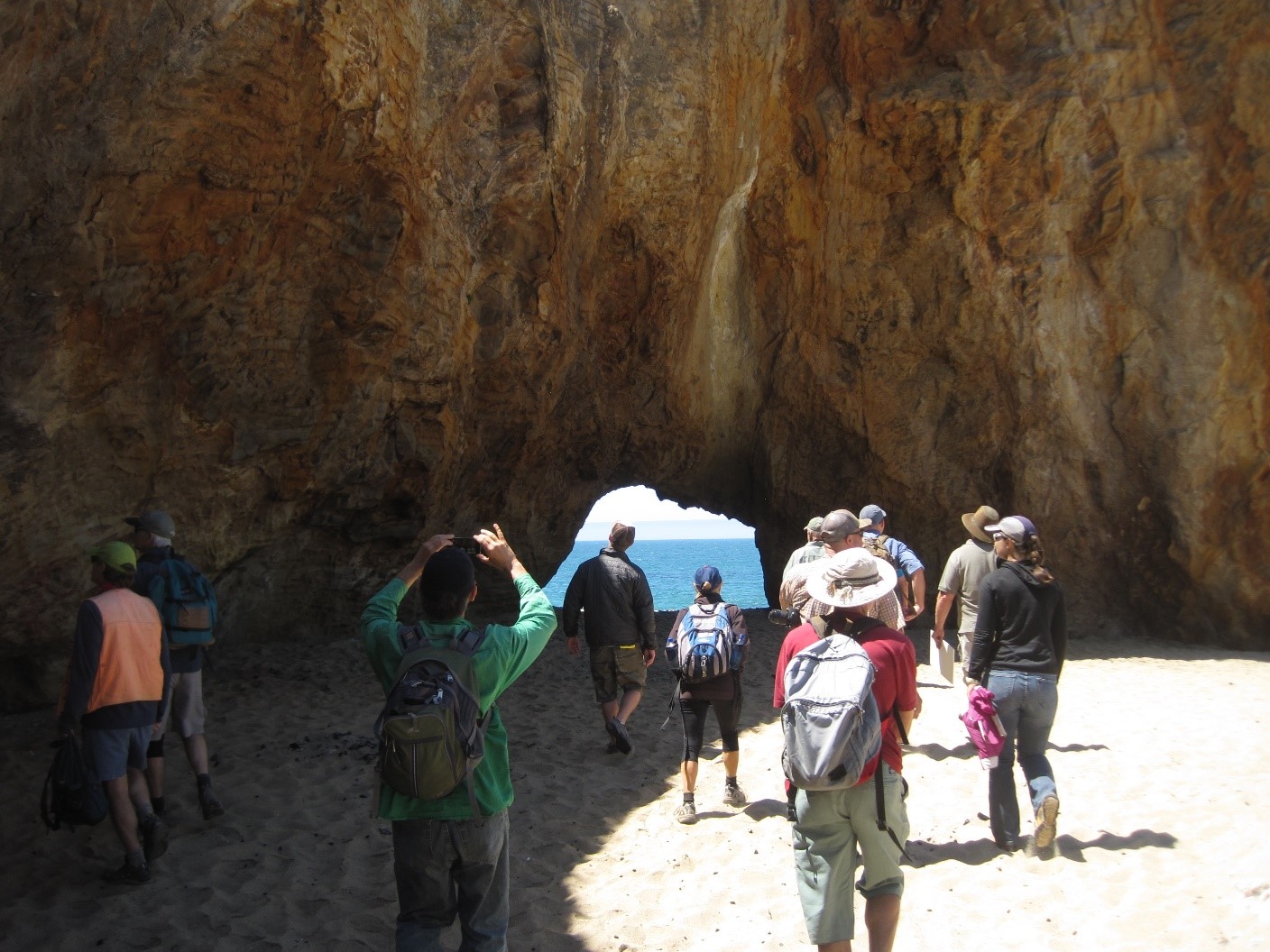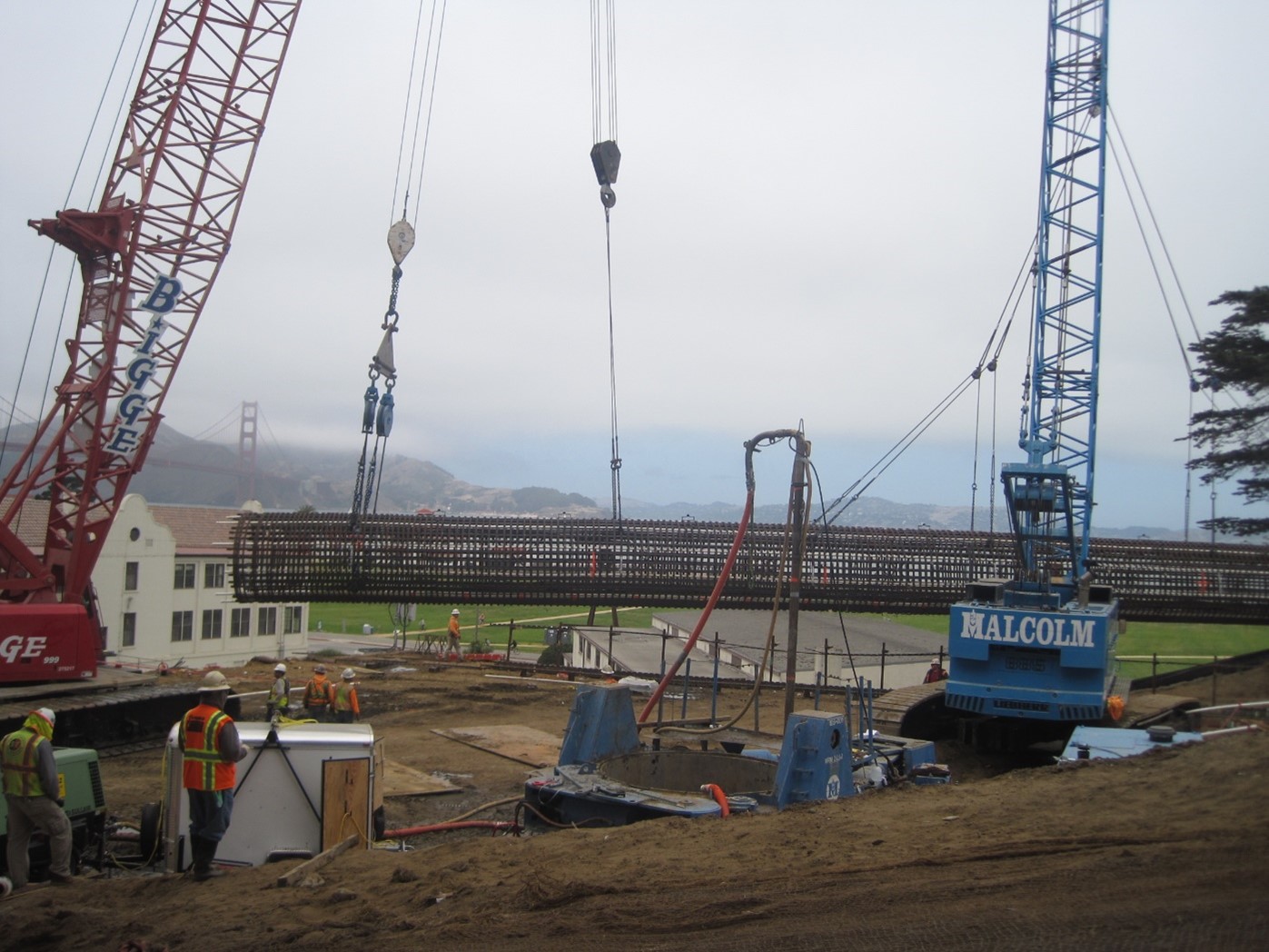
photo by WGodwin, 10.11.14
Your studies and experiences during college are invaluable in preparing you for a future in the geologic sciences. But academic training, however thorough, can never fully prepare you for life as a professional working in your field.
Therefore, we have compiled some sage advice from AEG members reflecting on lessons learned during their first years working in the environmental and engineering geology industries. We hope you will benefit from learning about the hurdles they encountered and what they wish they had known at the time. Advice received from more experienced AEG members has been critically important to many new members as they transitioned from being students to young professionals.
Many of the suggestions on this list are opportunities that you can easily access through AEG membership. We hope this advice will help you find success in your career and illustrate the value of an AEG membership.
Networking:

- Networking is important, even after you get a job!
In any business, connections and relationships are everything. Don’t limit yourself to networking within your field only. Forging good working relationships with professionals outside your own field can be just as important as networking within your specialty. - When you attend AEG section meetings, make it a goal to get to know at least two non-student members at each meeting.
It is tempting, and understandably more comfortable, to talk with friends and peers, but getting to know professionals will pay off in many ways when it comes to finding internships and jobs as well as professional contacts for your future carrier. Not to mention the fact that AEG members are a wonderful group of people and you will likely make some great friends. - Getting a job can often come down to who you know, no matter how impressive your resume is.
Talk with and get to know as many professionals as you can regardless of whether they have the ability to hire you. Even if they or their company are not hiring, they can be good references or have valuable contacts. AEG section and national meetings are great opportunities to network and get to know local professionals.
- Getting involved in meetings (like joining a committee) is more beneficial than just showing up to meetings.
Joining AEG committees, volunteering for a section officer position, or just taking advantage of student presentation nights are great ways to make a name for yourself and show potential employers and collaborators your leadership potential, motivation and capabilities.
-
Attending conferences is good practice for networking and presenting.
Social and public speaking skills, as well as the ability to get an idea across clearly and effectively, are a must in the workplace. You will likely be called upon someday to make presentations on an important project to the public or other stakeholders, so these are skills you should be working on throughout your career. AEG’s Chapter or Annual Meetings offer many opportunities to hone your ability to communicate. -
Be sure to have a business card on hand at all times!
Think business cards are passé in the digital age? They are not. Seasoned professionals still prefer this convenient method of trading contact info with new colleagues. It allows someone to connect your name, your face, and the conversation with a visual aid. Your card should include your name, contact info and qualifications (list your degree or degree in progress if you don’t have work experience yet).
While in college:
Photo by WGodwin, 7.25.15 - Internships/volunteering/practical experience/research experience is important!
Having real work experience seeing how drilling, sampling, and so on actually happen in the field is invaluable and will help you stand out from other job applicants. The more practical, hands-on experience you can acquire, the better. If you are unable to find a paid internship, consider taking a volunteer internship to broaden your knowledge and fill out that resume. - Go to field camp, even if your school doesn't require it.
You will learn how to use field equipment that will make you a more appealing candidate and give you a greater comfort level doing field work in future positions. During the Pandemic, many schools did not offer field camp, so attending wherever possible will put you in a better position. Consider choosing a region away from home to obtain broader geology experience and work with different instructors with varied backgrounds.
- Work on your written communication skills.
There is a lot of writing required in this profession. Take as many writing classes as you can; they will come in handy. Take plenty of time to review your writing before handing it in. Learn to write for your audience. Beware of using scientific jargon if you are writing for a non-scientific audience. Whenever possible, get a peer to review your work, ideally someone with a similar knowledge level as your target reader. In the consulting field, after a project is complete, usually the only remaining record of what occurred is the report which represents the best documentation of what transpired on the project.
- While in school, take as many math and relevant software courses as possible.
Get as much training as possible in practical courses in mathematics, GIS, and software that is currently popular in the industry. Being proficient in the technical software used in a position for which you are applying will put you ahead of other candidates.
- Keep your resume up to date so you're always prepared.
A quality resume takes time to build, and you don’t want to be putting it together in a hurry. Update it every few months, or whenever you have some new relevant work experience or achievements to add.
- If you start looking for work after you graduate. you're already behind the curve.
It can take weeks or even months to go through the full hiring process at many firms, with no guarantee that you’ll land the position at the first place you apply. Start looking before you graduate. You’ll have a better sense of what’s out there, get your name out to several different companies, and may even get a job lined up to be able to start right after graduation.
- Schedule informational interviews.
These are a great way to find out more about your career options and how best to prepare for the real deal. Many professionals will be happy to sit down with you to talk about what they do and give you advice. (Hint: Fellow AEG members are a fantastic resource for informational interviews.
What is truly required:
- You CAN get a job with a Bachelor's Degree.
While the job market is increasingly demanding, a master’s degree is not always required in order to succeed in a great career. Do your research on the type of job you want and talk to other geology professionals to see whether or not you need to get an advanced degree to work in your desired position.
- A PG, PE or other similar licenses is not always necessary.
While getting started towards a license right away is a great idea if you know that you will need it, deciding which industry and region you want to work in first can help you decide if a license is right for you. View Professional Geology Licensure requirements by state
Early in your Career: -

Photo by WGoodwin, 7.12.13 - When you get a chance to get behind a drill rig, talk to the drillers.
You may have a degree, but they have far more experience and practical knowledge and can teach you a lot about the technical aspects of working in the field. This also holds true for construction personnel. By learning as much as you can about what they are doing and observing the common issues and problems that may arise, the results of your subsurface investigation will be more valuable to your client and you will be empowered with extra insight when planning future projects.
- Subcontractors probably know a lot more about geology than you think they do.
Remember this if you end up working with drillers, backhoe operators, or similar professionals. They can be a great source of information and great allies. Value their input.
- You can always learn something from everyone.
Always. - You will have to pay your dues.
The grunt jobs go to the recent hires, no matter how smart or well-educated you are. Having the right attitude about it will help you in the long run. Every position has something to teach you. And doing those entry-level jobs will help you in future if you are later in a position to manage the staff in those same jobs.
- Some jobs will have you living in a hotel room for weeks/months at a time.
For a lot of young geologists just starting out, this can sound appealing if you enjoy travel and new experiences. If it turns out to be not a good fit or you become tired of being on the road, you’ve gained some experience and can narrow down your career goals.
Have a tip of your own to share with us? Add it in the comments below!
Click here for more resources for geology students.

So many good suggestions. If you are an engineering geologist, take Bill Godwin's advice: talk to the driller! "Brush up your Shakespeare, start quoting him now..."; well at least get your elevator speech ready. Try writing your investigation report before you even go out there. That means do your homework or desk study first, and then you'll be amazed at how much more you can see. As Yogi Berra said, you can see a lot by observing things.
Bill - superb list of items! I hope to share it with all of my students. I will add many of them to my list that I already stress, but you have added some that I never thought about and are really good! Many thanks for your "list"!
I agree with most of this advice. I'm afraid I disagree with item 15. You need PG and CPG certifications to compete with PE's and other professionals successfully. If you do not have these certifications, other certified professionals will treat you as cheap labor and will use your work as their own without credit. Steve Stokowski, CPG, PG
Learn how to talk. You will have to explain things to your crew, peers, supervisor, boss, VP, and client many times during your career. Learn how to explain complicated issues and situations credibly and clearly, without being condescending. Consider joining Toastmasters, a self-paced practical course of public speaking. You will be a better communicator with Toastmasters' practice. Formal presentations, which you will have to make sooner or later, will become doable -- and maybe even enjoyable.